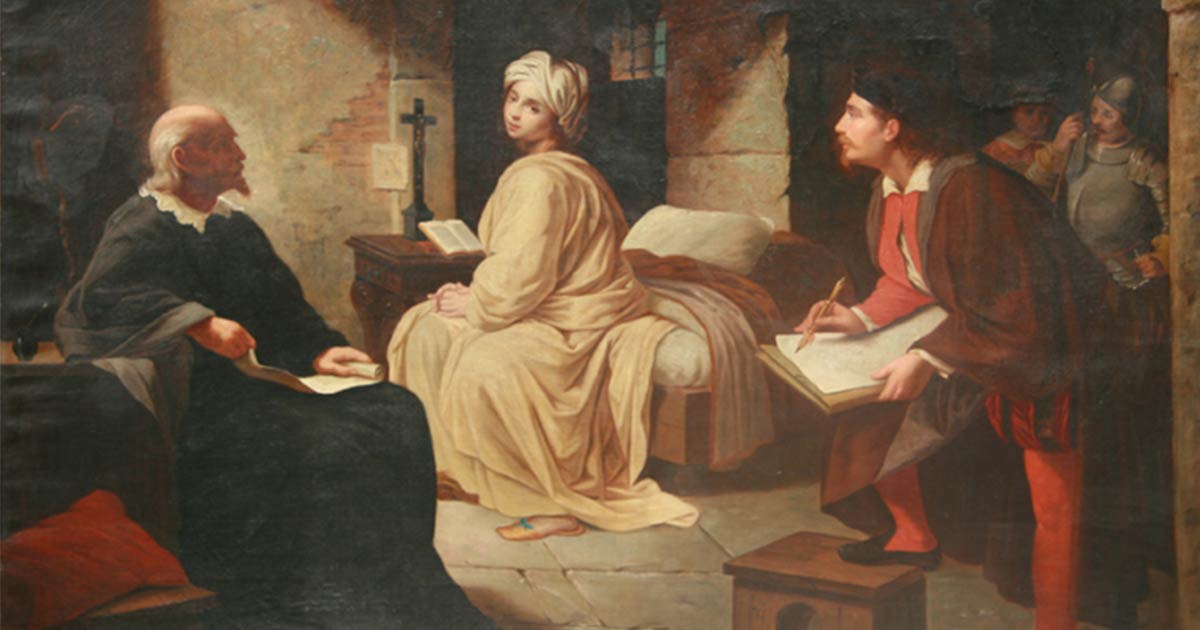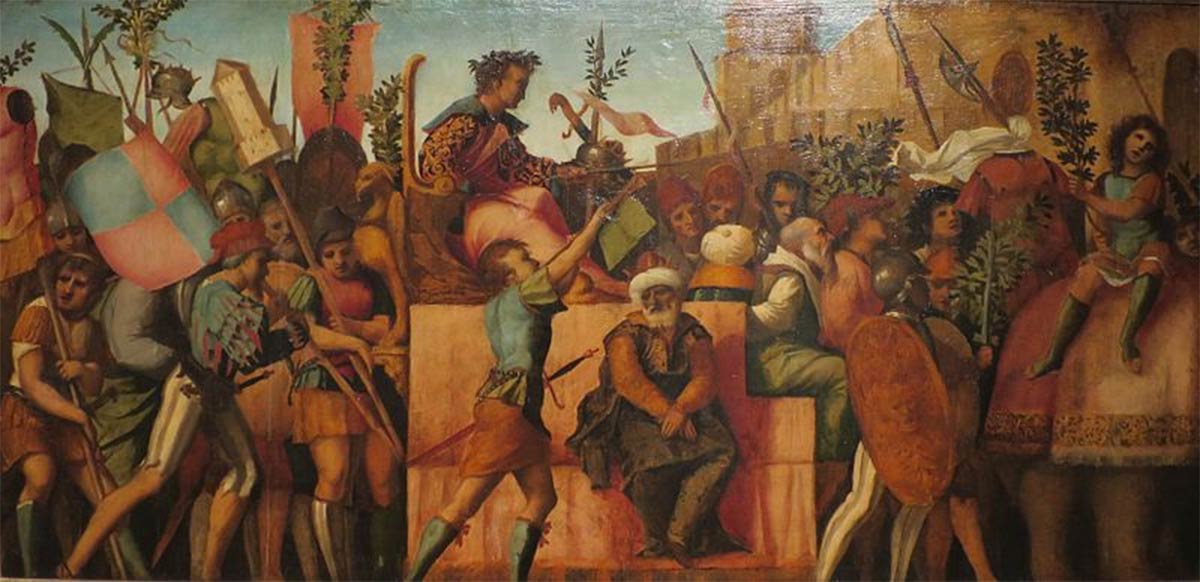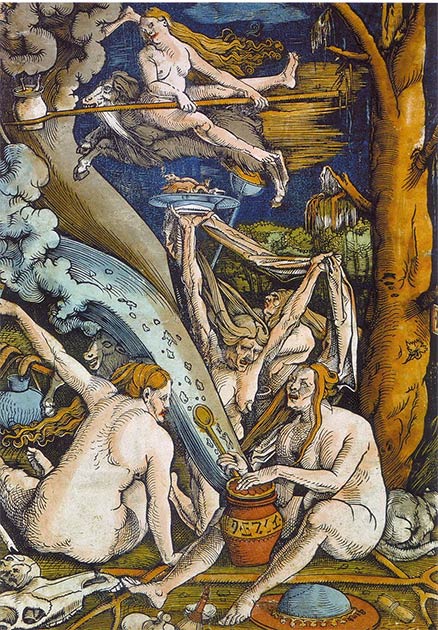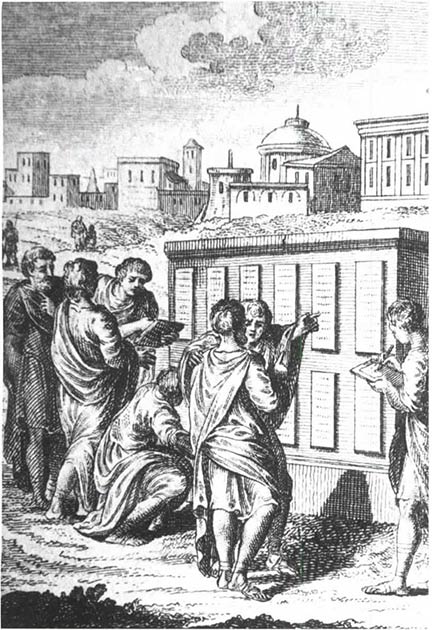
The Ghosts and Superstitions of Ancient Rome
The history of the military conquests of the ancient Romans has often neglected to highlight some characteristics, which are still typical of the citizens of the Urbs Aeterna (Eternal City). The Romans have always shared an undisputed love for a salacious joke and for witty phrases. The Horatian expression Italum acetum expresses the witty and biting spirit that characterized, and still characterizes, the citizens of Rome, who dared to taunt even heroes, popes and emperors. Any defect could be subjected to irony, such as a hump, a hunched back, or a characteristic such as avarice. Even during the triumph of Gaius Julius Caesar the soldiers at a certain point exalted his physical and moral defects, calling him adulterous and bald.

The Triumph of Caesar by Jacopo Palma il Vecchio. (c. 1510) Lowe Art Museum. (Public Domain)
The irrational, superstitious fear of any events considered supernatural may have characterized even the leaders who made Rome great and counterbalanced the Romans’ passion for derision. Everyone, some more and others to a lesser extent, feared to encounter the shadows of the dead; the ghosts who dwelled in some cursed houses. It was believed that if a wolf first looked at a man, he would become mute. Sailors, during their sea voyages, were careful not to cut their nails or hair, unless the wind raged. To hear the cry of the parra (bird of ill omen) was an omen of misfortune, as well as when a divine statue was sweating blood. Deep terror shook those who heard the screams of the witches who performed their mischief at night. However, even witches could be mocked.

The nocturnal visionary tradition of the Benandanti led the Roman Inquisition to accuse them of being witches, malevolent Satanists depicted in this 1508 woodcut by Hans Baldung (1508) (Public Domain)
Roman Witches
One of the greatest Latin poets, Quintus Horatius Flaccus narrated the scene of a nightly spell on the Esquiline Hill by two awful women, Canidia and Sàgana. Witnessing their witchcraft was a figure of the god Priapus carved in a fig tree trunk, who saw Canidia wandering around barefoot, with disheveled hair, together with Sàgana, both horrible in their pallor. The two witches, who desired to summon the spirits to consult with them, brought a woolen puppet and a wax puppet along to conduct an evil spell. The first witch invoked Hecate, the second Tisìfone, while infernal dogs, snakes and the fiery red moon hid behind the great sepulchers, so as not to witness the evil scene. When Priapus, horrified by so many wicked actions, emitted a noise behind them, the two witches run away. Canidia lost her dentures and Sàgana her huge wig in their flight.
- Hungry Ghosts and Spirits of the Underworld
- Sorcery at the Vatican: The Papacy’s Seven Deadly Sinners
- Why the Romans were not quite as clean as you might have thought
Safeguarding Against Evil
However, not everyone found the courage to be ironic when it came to safeguarding his life. To defend against the dangers that threatened one’s health and business, it was necessary to resort to amulets, rely on oracles, astrology and prophetic dreams. The Romans did not remain inert when it came to safeguarding their existence and interests. They devised a series of effective means capable of guaranteeing their freedom of action as much as possible, even acting paradoxically by not paying attention to divinatory signs, or to reject them if they had seen them, when it suited their purpose.

Roman civilians examining the Twelve Tables after they were first implemented. (Public Domain)




